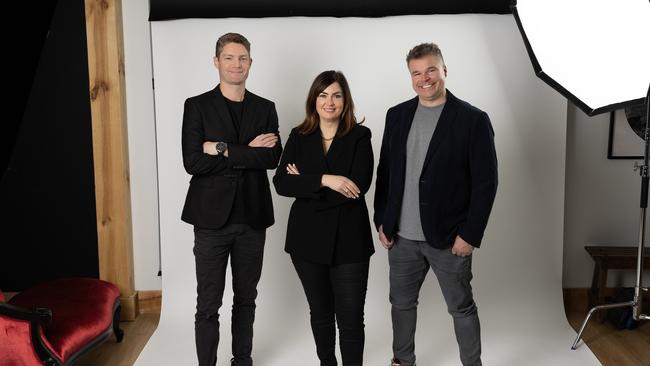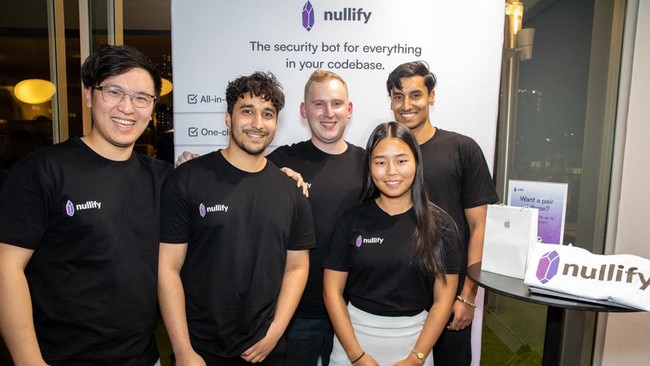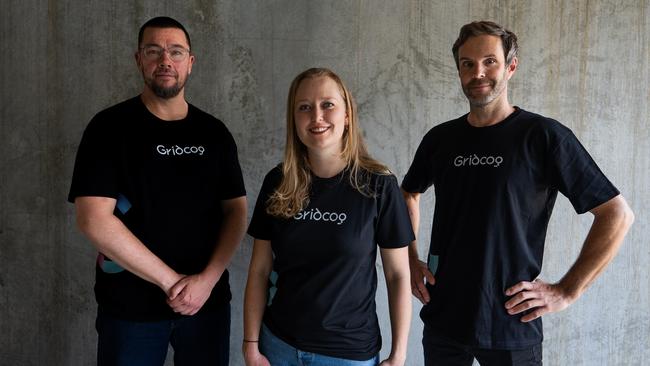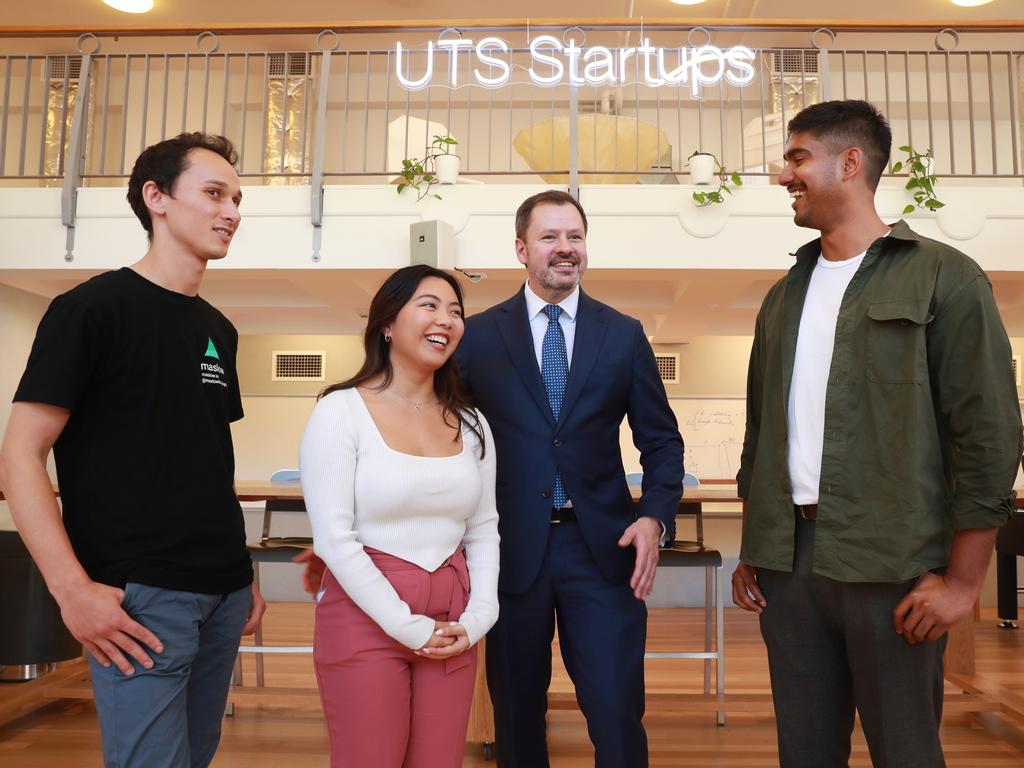Micro consultations, AI cybersecurity both million dollar ideas
An Australian start-up selling answers from real people in the age of ChatGPT has raised $1m to expand into an e-commerce marketplace.

An Australian start-up selling access and answers from real people in the age of ChatGPT has raised $1m to expand into an e-commerce marketplace.
The micro-consulting platform, founded during the pandemic, capitalises on human intelligence, taking a cut from 15 to 30 minute sessions with GPs, nutritionists, dietitians and personal trainers.
Investors have taken a keen interest in Diranne Lee-Renwick’s Anni, as it arrives during a time when online courses are booming.
While some courses come with accreditation from major tech companies, others belong to the likes of lifestyle coaches, key opinion leaders (KOLs) and fitness gurus with large social media followings who sell introductory boxing courses and branded merchandise.
Mr Lee-Renwick bills Anni as an Advice-as-a-Service (AaaS) business, a play on the tech term Software-as-a-Service (SaaS).
“We’re also in this era of misinformation. There’s this kind of premise that people need to follow a social media influencer when in fact now for a small fee, they could actually talk to a real expert, a real human,” he said.
When the idea first sprung to mind it wasn’t as much about providing access to human intelligence — conceptualised two years before ChatGPT’s public release — but as a way for people who typically operated in an office with appointments to work from home.
“It all came about during the pandemic when we started to see a lot of friends and family lose the ability to make money,” Mr Lee-Renwick said.
“A lot of people in that sort of contracting environment lost their physical spaces and office and consequently the ability to earn any money.”
The platform has around 250 experts on it, about 37 per cent of whom are naturopaths or nutritionists. Sexologists make up around four per cent.
The backing came from several family offices which Anni would not disclose.
Anni’s focus now is building its next iteration as a marketplace, Mr Lee-Renwick said.
“A lot of the naturopaths, nutritionists and fitness coaches have products that they want to sell, and how-to guides and meal plans so that will be available soon.”
Cybersecurity firm Nullify has also raised $5.2m this week after a trip to the US proved successful with American investors.

The start-up has developed what it describes as an under-the-hood cybersecurity engineer, a product embedded into a company’s back-end which scans and learns from all of their code.
“For companies that build software, there’s usually a smart security team that makes sure it doesn’t contain any vulnerabilities. However, given the cyber skills shortage, it’s very hard for that team to keep up with all the work nowadays,” said founder Shan Kulkarni.
Nullify’s product, once embedded, begins to analyse the latest trends in cybersecurity and measures them against a company’s code to find vulnerabilities.
It’s a job founder Mr Kulkarni said will make a huge difference amid the current cybersecurity shortage.
“If you don’t have the talent, you can now still build secure software as a company.”
The product is using artificial intelligence to learn from the code it interprets and then tests for flaws and openings, he said.
Nullify was well-placed to grow amid an increased importance on cybersecurity and the consequences for companies which are breached.
“Today boards are placing a higher price on security than they are on insolvency,” Mr Kulkarni said.
Nullify will use the capital to double its team to around 15 staff and prepare for a US launch, slated for June this year.
Mr Kulkarni said while the start-up had picked up significant interest in the US, Nullify has no plans to shift its office out of Australia.
“$US4m in funding can go a lot further in Australia and that’s not at the expense of the quality of engineers we can hire here. There’s some incredible engineering and security engineering talent right here in Australia,” he said.
Nullify is planning to launch officially in the US at New York tech week in June.
Nullify’s seed round received investment from Conviction Partners, Black Nova VC, SentinelOne vice president of product Ely Kahn, former CBA chief information officer Pascal Boilatt and Bugcrowd senior director of cybersecurity Sajeeb Lohani.
The raise is the second in less than 12 months, after Nullify picked up $1.2m in June last year.
Australian energy software start-up Gridcog also picked up $6.4m this week to expand across the UK and Europe in a round led by AlbionVC.

The company provides customers a ‘whole of picture’ view of their energy system, including solar, battery storage, electric vehicles and charging infrastructure. Customers can even simulate outages and other issues to see how their system would perform.
The start-up had become popular among major corporations including Shell, Origin Energy, Mitie, Mitsubishi Heavy Industries and EY.
AlbionVC investment director Adam Chirkowski said the Gridcog’s technology provided a modern solution to analysing multiple energy sources.
“Gridcog’s technology is a game-changer, essential for accelerating investment into clean energy projects, especially when traditional tools fall short in addressing the increasing technical and commercial complexities of energy project investment,” he said.







To join the conversation, please log in. Don't have an account? Register
Join the conversation, you are commenting as Logout